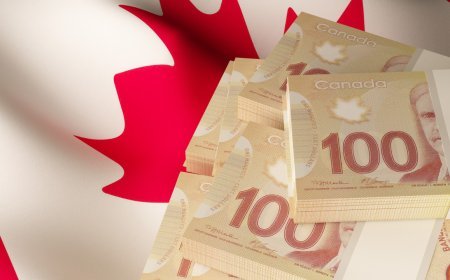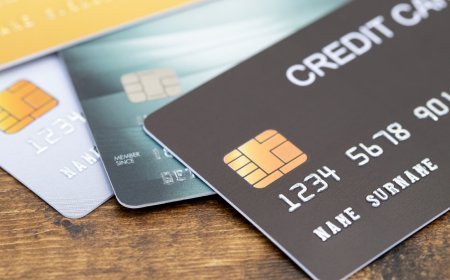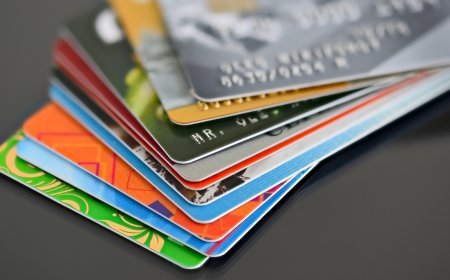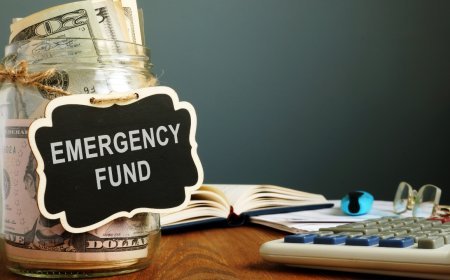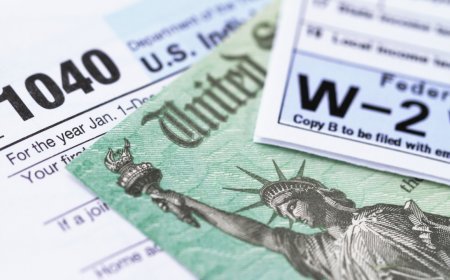How to Travel on a Budget: Smart Tips for Affordable Adventures
Traveling doesn’t have to break the bank. You can explore new places and create lasting memories by learning how to travel on a budget. This article was written by both financemastering.com and usbestnews.com teams.
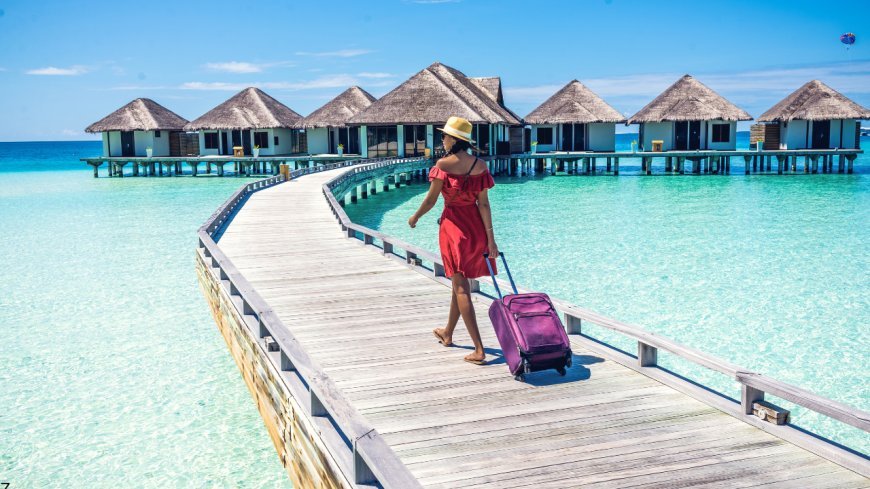
Traveling doesn’t have to break the bank. You can explore new places and create lasting memories by learning how to travel on a budget. With a little planning and some smart choices, you can stretch your money further than you think.
One of the keys to traveling affordably is creating a travel budget. This means setting a clear limit on how much you can spend and sticking to it.
By knowing your finances upfront, you can prioritize your travel experiences and make choices that keep you within your limits while still enjoying your trip.
Whether it’s finding cheap flights or choosing budget-friendly accommodations, there are many ways to reduce costs.
Embracing public transport and eating like a local can also make a big difference. By adopting these strategies, you’ll find that traveling can be both fun and easy on your wallet.
Planning Your Budget-Friendly Travel
Establishing a solid plan can help you manage your travel costs effectively. A clear budget, transportation planning, and smart choices for accommodations and food can make your trip enjoyable without breaking the bank.
Starting With a Clear Budget
Begin by setting a travel budget. Determine how much money you can spend overall.
Break this amount into daily budgets for accommodation, food, activities, and transportation.
Creating a simple table can help. For example:
| Item | Daily Budget | Total Budget |
|---|---|---|
| Accommodation | $50 | $350 |
| Food | $30 | $210 |
| Activities | $20 | $140 |
| Transportation | $20 | $140 |
| Total | $840 |
Stick to this plan and track your spending daily. This helps ensure you have enough for the trip and can avoid stress later on.
Research and Compare Transportation Costs
Transportation can eat up your budget quickly, so researching options is essential. Look into flights, buses, trains, and rentals to find the best deals.
Use websites and apps that compare prices. Don’t forget about hidden fees. Airlines might charge extra for luggage, while rental companies may have insurance requirements.
Consider traveling during off-peak times to save even more.
Public transportation is usually cheaper. Buses or trains can be cost-effective ways to get around. Some cities offer travel passes for unlimited rides, which can save you money on transportation costs.
Accommodation Options for Every Wallet
Finding the right place to stay is crucial for budget travel. There are various options depending on your needs and budget.
Hostels are popular among budget travelers. They offer shared rooms and kitchens at lower prices. For more privacy, consider budget hotels or motels. Use travel sites to find good deals.
Platforms like Airbnb can provide affordable options, too. You might find unique places or even rooms in local homes.
Split costs by traveling with friends and booking larger accommodations. You can also check for discounts on extended stays or choose campsites if you're adventurous.
Saving on Food and Drink While Exploring
Food is a big part of travel and can add up quickly. To save, look for local markets or grocery stores. Buying snacks or meals can be cheaper than dining out.
When you do eat out, choose places away from tourist spots as they often have higher prices. Look for lunch deals or early-bird specials. Eating out for lunch rather than dinner can also cut costs.
Finally, try to drink water instead of soft drinks or alcohol. Many places offer free tap water, which can save you money while staying hydrated. Eating wisely keeps your budget in check and allows for more experiences on your trip.
Choosing Your Destination Wisely
Selecting the right travel destination can greatly impact your budget. By being strategic about when and where you travel, you can save a considerable amount of money. Two important factors to consider are traveling during off-peak seasons and looking for up-and-coming locations.
Traveling During Off-Peak Seasons
Traveling during off-peak seasons can save you a lot. High season, especially in popular places like Europe or Australia, sees prices soar for flights and accommodations. For example, visiting Italy or France in the spring or fall often means fewer crowds and lower rates compared to summer.
Research your destination’s peak seasons. In Japan, the cherry blossom season in spring draws crowds, while traveling to Thailand between June and October can offer better deals. Consider Central America or Morocco as cheaper alternatives in the fall.
Looking for Up-And-Coming Locations
Exploring up-and-coming destinations can lead to great adventures on a budget. Areas like Boston and San Francisco are well-known but can be pricey during high season. Instead, consider lesser-known places in North America or Africa. Look for cities not yet on everyone’s radar.
For instance, instead of London, try visiting smaller towns in England or other European countries that offer unique experiences without the high prices. Research destinations in Asia or Central America that are gaining popularity. Traveling to these spots can give you a deeper experience at a fraction of the cost. Keep your options open and look for places that may soon be the next big thing!
Getting Around Without Breaking the Bank
Travel can often add up quickly, but choosing the right transportation options can make a significant difference. You can save money by using public transportation and budget airlines, or by planning more affordable road trips.
Utilizing Public Transportation and Budget Airlines
Public transportation is one of the best ways to save money while traveling. Buses and trains are usually cheaper than taxis or rented cars. You can often find city passes that allow unlimited travel for a set number of days.
For longer distances, budget airlines can offer great deals. Companies like Southwest or Ryanair frequently have discounted fares. To snag the best prices, book your tickets in advance and be flexible with your travel dates.
Planning Road Trips and Alternative Travel Options
Road trips can be a fun and cost-effective way to travel. Make sure to plan your route in advance. You can save on lodging by camping or finding budget-friendly motels. Group travel can also help split fuel costs, making it cheaper for everyone.
If you're considering alternative travel options, think about renting a bicycle or using rideshare apps. These methods can be more affordable and offer a unique view of your destination. Remember, the journey can be just as enjoyable as the destination!
Accommodation Hacks
Finding affordable places to stay can greatly reduce your travel expenses. By exploring various accommodation options, you can enjoy comfort and convenience without breaking the bank.
Choosing Hostels and Shared Spaces
Hostels are a fantastic way to save money while traveling. They offer shared dorm rooms at much lower prices than hotels. You will find many hostels with great amenities, including kitchens and social areas.
When choosing a hostel, look for ones with good reviews and a fun atmosphere. Popular platforms like Hostelworld can help you find the best options. You might also consider shared spaces. Websites like Couchsurfing let you stay with locals for free, giving you a chance to connect and learn from them.
Benefits of Hostels and Shared Spaces:
- Affordable pricing
- Opportunity to meet fellow travelers
- Access to communal kitchens to save on meals
Benefiting From Home-Sharing Platforms
Home-sharing services like Airbnb can offer unique stays away from crowded hotels. Many hosts provide homes or rooms at competitive prices. By booking directly, you might find better deals than through traditional hotels.
When using Airbnb, look for entire homes or private rooms that fit your budget. Read reviews to ensure you choose a suitable place. Additionally, platforms like TrustedHousesitters let you stay in homes for free in exchange for pet care, making it a win-win situation.
Key Steps for Using Home-Sharing:
- Compare prices across different times for the best deals.
- Communicate with hosts before your stay to address any questions.
- Always check cancellation policies for peace of mind.
Tips for Further Savings
When you travel on a budget, it’s important to find ways to save on activities and manage extra expenses. Smart choices can stretch your vacation budget even further.
Finding Deals on Activities and Excursions
Research is key to saving money on activities. Start by looking for free walking tours in the destination you're visiting. Many cities offer these tours, giving you a chance to learn while saving cash.
Check websites like Groupon or local deal sites for discounts on activities and excursions. You can find packages that combine multiple attractions at a lower price.
Consider visiting during off-peak seasons. Prices often drop when there are fewer tourists. You should also ask about any promotions or discounts available. Local attractions may have special days with reduced rates.
Managing Souvenir and Extra Expense Budgets
Souvenirs can quickly eat away at your budget. Set a specific dollar limit for souvenirs. This way, you can enjoy shopping without overspending.
Think about experiences instead of items. For instance, taking a local cooking class might be more memorable than a trinket.
Get creative! Consider making your own souvenirs like taking photos or collecting postcards. These options are often more meaningful and less costly.
Before purchasing, compare prices at various shops. Local markets may offer better deals than tourist shops. Most importantly, stick to your budget to ensure that you enjoy your trip without worry.
Staying Safe and Insured on a Budget
When traveling on a budget, safety and insurance are crucial. Understanding how to protect yourself while managing costs keeps your trip enjoyable and worry-free. Here are some tips to navigate health and safety on your adventures.
Navigating Travel Insurance and Health Costs
Getting travel insurance can save you from high medical expenses. Look for an insurance plan that covers medical expenses and emergency evacuations.
Many plans offer affordable policies, so do your research to find one that fits your budget.
Before purchasing, compare different options. Check what each policy includes and any exclusions. Some credit cards provide basic travel insurance when you use them to book your trip, so investigate those benefits.
If you have health insurance, confirm whether it covers international travel. If not, consider getting a short-term health plan. This can cover doctor visits and hospital stays abroad, ensuring you’re protected against high costs if something goes wrong.
Keeping Your Belongings Safe
To avoid losing your luggage or valuables, take strong preventive steps.
Always use high-quality luggage with locks. Also, consider using luggage tags with your contact information.
When in public places, be mindful of your surroundings.
Use crossbody bags or money belts to keep your belongings secure. Also, don’t leave bags unattended when visiting restaurants or tourist spots.
Consider taking photographs of your valuables as a record. This can help if you need to report a theft or claim insurance.
Remember, staying vigilant is key to keeping your belongings safe while traveling.
What's Your Reaction?
 Like
0
Like
0
 Dislike
0
Dislike
0
 Love
0
Love
0
 Funny
0
Funny
0
 Angry
0
Angry
0
 Sad
0
Sad
0
 Wow
0
Wow
0










